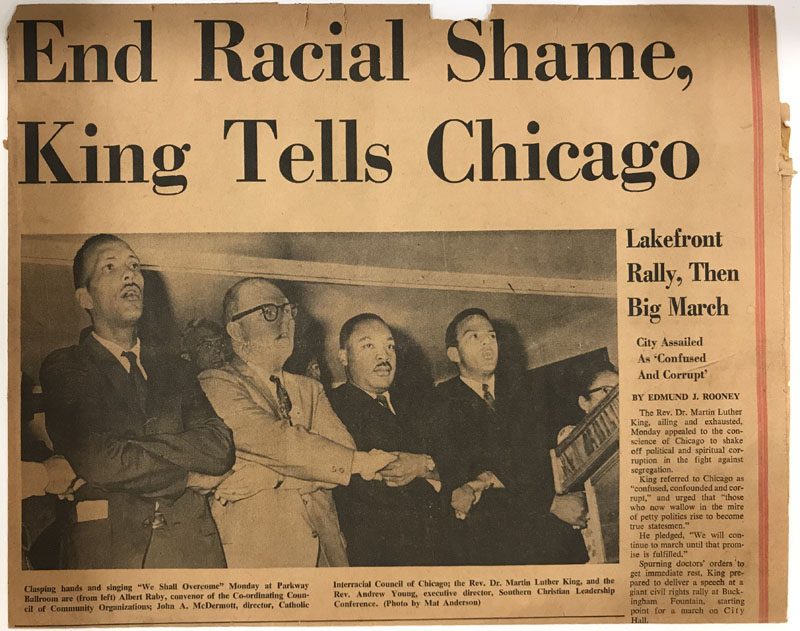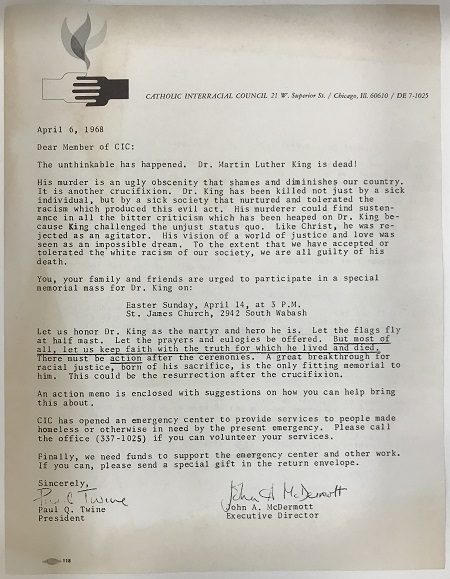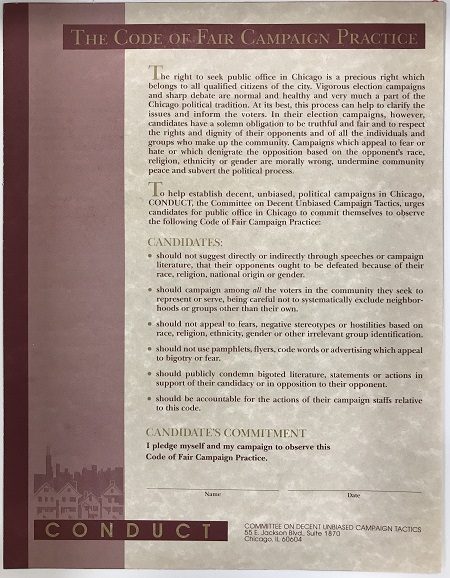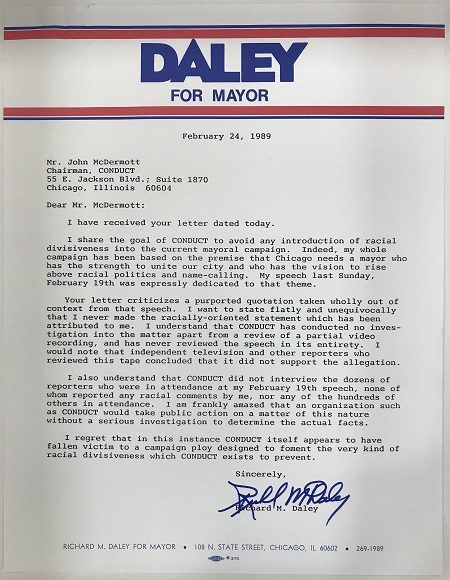CHM archives intern Ashley Clark worked with archivist Julie Wroblewski to process the papers of John A. McDermott, a local leader in race relations and urban affairs from the 1960s into the 1990s.
This past fall, I had the opportunity to process the John A. McDermott papers at the Chicago History Museum. I had processed archival collections prior to this project, but the McDermott papers, at about twenty-three linear feet (twenty-three boxes), is the largest collection I have encountered. Although it already had a strong existing organization scheme (what archivists call “original order”), one of the biggest challenges was trying to describe and represent everything McDermott was a part of during his life. He held such active and wide-ranging roles in so many different areas of improving race relations in Chicago that it was difficult to accurately and thoroughly capture this without making the finding aid too lengthy and thus hard to use for researchers. In addition to documenting McDermott’s career in urban affairs from 1970 to 1996, the papers also document many of the local organizations and individuals working on the same issues that are not otherwise well-represented in archival collections.

A Chicago Daily News clipping shows Albert Raby, McDermott, Dr. Martin Luther King Jr., and Reverend Andrew Young clasping hands and singing, July 1965. All images by CHM staff
John A. McDermott was a leader in race relations and urban affairs in Chicago from 1960 into the 1990s. He moved to Chicago from Philadelphia in 1960 to serve as director of the Catholic Interracial Council of Chicago. As an associate of Dr. Martin Luther King Jr., McDermott was active in the civil rights movement in Chicago as an organizer and as part of the Chicago Freedom Movement and Dr. King’s meeting with city leaders, including Mayor Richard J. Daley. He was also one of the founders of the Leadership Council for Metropolitan Open Communities, a Chicago-based fair housing group, and organizer of the Chicago Conference on Religion and Race in 1963.

The memo McDermott released to the Catholic Interracial Council following Dr. King’s death.
McDermott not only continued to be an advocate for race relations in Chicago after the 1960s, but also became an advocate on other issues including education reform, poverty alleviation, public policy, Catholic-Jewish relations, and fairness and transparency in politics and campaigning. He also served as editor and publisher of The Chicago Reporter from 1972–84, a monthly publication and investigation on race relations and urban affairs in the city. In 1985, he became director of urban affairs for Illinois Bell Telephone Company, where he advised on company policies and programs in public policy, philanthropy, and community relations. During this time McDermott also served as chairman of CONDUCT (Committee on Decent Unbiased Campaign Tactics), a nonpartisan group of Chicago civic leaders that became an election watchdog group, calling out racial and religious bias and hate in Chicago politics. In 1991, he retired from Illinois Bell and launched his own consulting company, John A. McDermott and Associates, in 1992, which focused on corporate public policy and programs.

A copy of the Code of Fair Campaign Practice by CONDUCT that election candidates were encouraged to sign.

A letter from Richard M. Daley discussing his support of CONDUCT and addressing a criticism reported by the group.
This collection documents not only the significant advocacy work that John McDermott achieved in his lifetime, but the challenges and progress of Chicago civil rights and other social and urban affairs in the late twentieth century and provides perspective on how these issues continue today. The John A. McDermott papers can be accessed through the Chicago History Museum’s Abakanowicz Research Center.